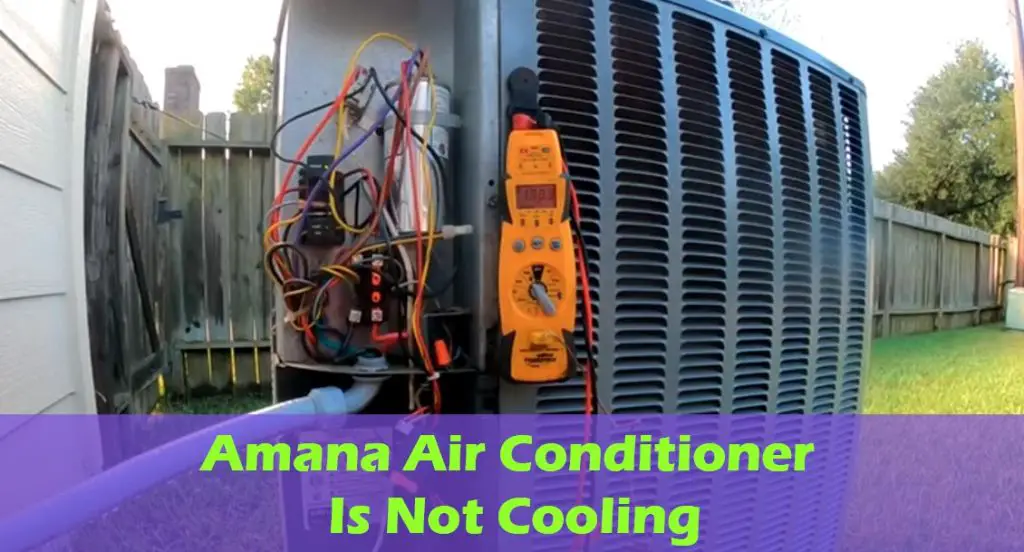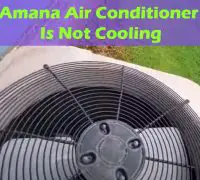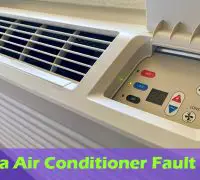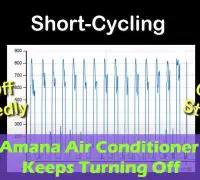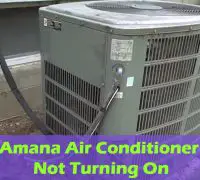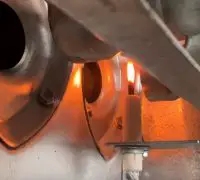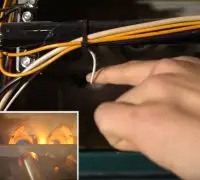When your Amana Air conditioner doesn’t run as expected, many will call the HVAC technicians immediately. However, not all issues require professional servicing. Checking out the manual is the first step to managing the problem. Sometimes, one can discover what went wrong and even fix the problem independently.
We should highlight that a well-maintained air conditioner will work for years in both summer and winter. Essential maintenance and quick repairs can add years to the AC unit. Amana Air Conditioners have an excellent lifespan, but the risk of issues is never null. It’s the same for all air conditioners and any device we use.
Page Table of Contents
Amana air conditioner not cooling—here are the possible causes!
There could be several reasons your Amana AC is not blowing cold air. Some of the issues are easy to solve by homeowners, whereas others will require attention from professionals. Here’s what you have to do when your Amana air conditioner doesn’t blow cold air:
Check out the power connections
As with all electric devices, you should check if the AC unit is turned on. Examine the unit to see if it receives power by removing the cover over the control board. Use a multimeter to observe the voltage from the 24-volt transformer.
Should you not detect voltage, see if there’s a loose or burned wire connector. A blown fuse inside the AC unit may also be the issue. If there’s voltage, but the unit still doesn’t turn on, you have to look for bad connections and blown fuses. Should the AC unit start and shut down shortly after, you must see the low-voltage cut-off relay. It could be faulty and stop the AC unit from running correctly.
The thermostat setting may be wrong
When the AC unit doesn’t perform as expected (blow cold air), the thermostat could have a problem. When you’ve set it to the wrong temperature, the AC unit may not operate correctly. Additionally, when the thermostat is on AUTO and not ON, the AC unit won’t cool the room because the thermostat will sense that the temperature isn’t cool enough.
The thermostat will not adjust independently if it is set higher than the outside temperature. If the air conditions are too high, it will not switch completely. The AC unit has to cool down a room before significantly modifying the temperature. Therefore, even if the AC blows, it can take time until the house cools.
To get results, you should manually reduce the inside temperature by at least 2 degrees with the thermostat before you continue to investigate the problems. We recommend you reset the thermostat and notice if there are any changes. You should contact an HVAC technician for repair work if there are no results.
Is the refrigerant low or leaking
Air conditioning and heating systems need refrigerants to run. If there’s a refrigerant leakage, you can follow the instructions in the AC unit to fix it. A refrigerant leak in the AC unit can cause temperature changes within your house and even excessive humidity. If you suspect such an issue, contact an HVAC professional immediately.
The filter is clogged
A dirty filter will alter efficient air flow and make the unit work harder than usual. After some time, some components will last shorter than expected. If your AC is always struggling or the electric bills are higher than usual and the unit doesn’t blow cold air, the air filters could be dirty. Replacing the filter often is an easy fix.
We recommend you change the AC filters even more often than usual if you have pets. Replacing the filter with a new one may be a professional job.
There’s something wrong with the condenser or the evaporator coil
Mold and mildew are common issues that preventive maintenance can prevent from happening. When you miss regular cleaning and inspecting the AC unit, severe issues (clogged coils) can develop. Coils require cleaning once a year.
An air scrubber or ultraviolet light system to filter out contaminants in the air before they get to the HVAC systems, are excellent tools to clean coils. You can use them to stop the coils from developing mold and mildew.
The AC condenser does wear out in time. When the AC unit doesn’t blow cold air, a problem with the condenser could be causing it.
